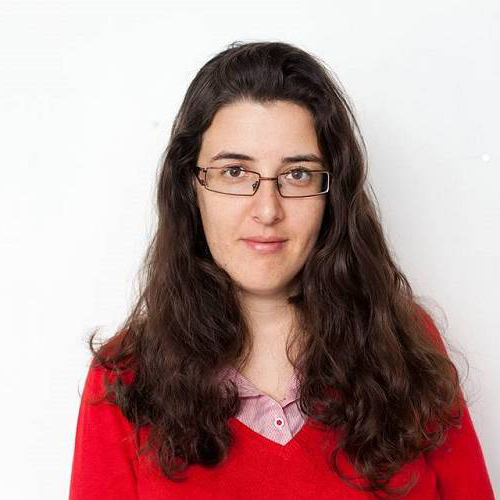A pro-Iranian militia is behind the abduction of Israeli-Russian scholar Elizabeth Tsurkov, who has been missing for several months in Iraq, claimed a statement from the Israeli prime minister’s office on Wednesday.
Iraqi officials have yet to respond to the allegations, which assert that Tsurkov is in the custody of Kataeb Hezbollah, a potent faction within the state-sanctioned Popular Mobilization Forces (PMF).
The scant attention to the incident in mainstream Iraqi media indirectly may, in the eyes of some, bolster the claim that Tsurkov was taken by the Iran-backed militia. Often, local outlets based in Iraq, or those with branches there, tread cautiously around criticizing Iran-backed militias, owing to the potential risk of reprisals. These militia groups, notorious for operating largely independent of state control, maintain substantial influence in both the government and parliament.
A statement from Israeli Prime Minister Benjamin Netanyahu’s office said, “Elizabeth Tsurkov is still alive and we hold Iraq responsible for her safety and well-being.” It further clarified that Tsurkov had visited Iraq “on her Russian passport at her own initiative pursuant to work on her doctorate and academic research on behalf of Princeton University in the US.”
An Iraqi intelligence source said Tsurkov was kidnapped in Baghdad “at the start of Ramadan,” the Islamic holy month of fasting, which began on March 23 this year. A Western diplomat in Iraq, requesting anonymity, confirmed she arrived in Baghdad in early December 2022.
Tsurkov’s last known communication, a tweet posted March 21, featured an article she wrote for the US-based New Lines Institute.
Speaking to the independent Altra Iraq website, an unidentified journalist and writer based in Baghdad said many journalists and activists “steer clear of the Karrada district, where militia members often keep tabs on influential figures and opinion leaders.” They further described Karrada as a militia stronghold, “where members operate openly, within view and earshot of security forces.”
Waleed Ibrahim, head of Al-Jazeera TV’s Baghdad bureau, quoted unnamed Iraqi sources who said a specialized security team had failed to find Tsurkov despite numerous raids in and around Baghdad. He added that Iraqi authorities have been investigating her disappearance since March, with a government statement expected soon
While in Baghdad, Tsurkov focused her research on pro-Iran factions and the activities of Iraqi Shiite leader Moqtada Sadr, according to several journalists who had interacted with her. Tsurkov was abducted as she was leaving a cafe in Baghdad’s Karrada neighborhood, an Iraqi intelligence source reported.
AFP received a surveillance video from the same source, showing a young woman exiting the cafe with a man. The source identified the woman as Tsurkov and the man as her abductor, allegedly a member of a pro-Iran Iraqi group. AFP, however, was unable to independently verify the authenticity of the video.
To date, no group has publicly taken responsibility for Tsurkov’s abduction. While many pro-Iran factions have been integrated into Iraq’s security apparatus, critics argue that some of these groups operate without restraint. An individual from the Iraqi intelligence services told AFP in late May that superiors ordered him to halt the investigation into Tsurkov’s disappearance.
In April, the Russian foreign ministry told AFP, “Regrettably, at this time, the Russian embassies in Iraq and Iran lack any information about the whereabouts or Russian citizenship of Elizabeth Tsurkov.” The ministry added that they had not received any reports regarding a “possible abduction in Iraq.”
London-based Al-Arab Al-Jadeed reported on March 27 that a note had been circulated to security forces. It described an incident where a militant group forcibly took a woman in her thirties from a car in Karrada at gunpoint and transported her to an unknown location. The website quoted a politician who confirmed that Tsurkov was held by a “powerful” Iran-affiliated militant group. The government of Prime Minister Mohammed Shia Al-Sudani was reportedly trying to negotiate her release after a failed raid resulted in several arrests.
Witnesses familiar with Tsurkov said she moved freely in Baghdad. Active on social media, she connected with various journalists and researchers across the region. Her personal website states she is fluent in English, Hebrew, Russian, and Arabic.
The academic and journalistic communities remain deeply affected by Tsurkov’s mysterious disappearance. An editorial from New Lines Magazine reveals an intense behind-the-scenes effort during the “months of public silence” following her abduction, underscoring their commitment to finding answers. The magazine pays homage to Tsurkov’s dedication to her distinct style of research, noting, “Liz is committed to a specific style of granular, hyperlocal research that requires fieldwork, and she never seems frightened of anything.”
A key element in the discussion surrounding Tsurkov’s abduction is her nationality. New Lines Magazine points out, “She is, however, an Israeli national, so there are parts of the Middle East where her very identity places her at grave risk.” This risk is particularly heightened in Iraq, with its landscape of “pro-Iranian militias embedded and running amok.”
Amberin Zaman of Al-Monitor presents a poignant quote from Tsurkov’s younger sister, Emma. Speaking of Elizabeth’s commitment to her work and her acceptance of its inherent risks, Emma states, “I talked to her several times about other ways it could be done to reduce the risk, but she decided this was her way.”
Tsurkov is a fellow at the New Lines Institute for Strategy and Policy and a research fellow at the Forum for Regional Thinking, an Israeli-Palestinian think tank in Jerusalem. Her research aimed to “understand and convey” the experiences and perspectives of people in the Middle East and to “highlight abuses by powerful actors, be they dictatorial regimes, armed groups, or foreign countries intervening in the region,” she wrote on her website.
AFP contributed to this report


